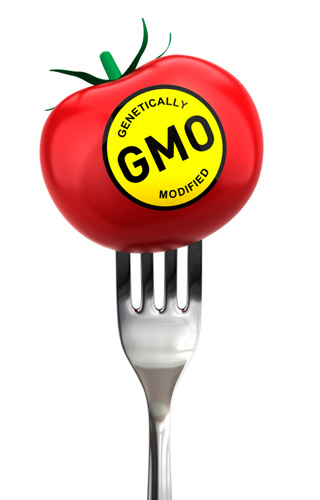BY HANNAH WALLACE | OB BLOGGER
The movement to label genetically modified foods suffered a major blow last month with the defeat of ballot measure 522 in Washington state, which would have required manufacturers to label foods containing GM ingredients. So what does 522‘s defeat mean for the GM-labeling efforts in Oregon?
BY HANNAH WALLACE | OB BLOGGER

The movement to label genetically modified foods suffered a major blow last month with the defeat of ballot measure 522 in Washington state, which would have required manufacturers to label foods containing GM ingredients.
So what does 522‘s defeat mean for the GM-labeling efforts in Oregon? Ivan Maluski at Friends of Family Farmers, a pro-labeling nonprofit that works on policy issues to protect socially responsible farming in Oregon, says his group will urge Oregon legislators to introduce a labeling law during the February session. “We believe the economic impact would be minimal and that the transparency would benefit consumers,” Maluski told me in an e-mail.
Scott Bates, director of GMO-Free Oregon and chief petitioner for a GM labeling initiative (that, if approved, will be on the ballot in 2014), says his group is also pushing the legislature to introduce a bill in February.
In Washington, many agricultural organizations opposed I-522—including the Washington State Farm Bureau and the Washington Association of Wheat Growers. Whether or not that means Oregon farmers and food processors will be in favor of a GM labeling law remains to be seen.
According to Oregon Department of Agriculture spokesman Bruce Pokarney, Oregon doesn’t grow a lot of GM crops — just sugar beet seed, alfalfa, some field corn, and a smattering of GM canola in eastern Oregon. Presumably that means that most Oregon farmers wouldn’t be impacted by a GM labeling law.
Eleven years ago, when GM labeling initiative Measure 27 tanked here in Oregon, an industry alliance called Oregonians for Food & Shelter opposed the measure. Their members include agriculture groups such as the Oregon Wheat Growers League and and the Oregon Farm Bureau as well as biotech companies including Syngenta, Monsanto, and DuPont.
Blake Rowe, CEO of the Oregon Wheat Growers League, says it’s hard to react to a potential Oregon initiative until he’s read the language but admits that the League — which advocates on behalf of thousands of Oregon wheat growers — would generally oppose a labeling initiative. “It’s just really hard to do something at the state level,” Rose says. “Especially when so much of commerce is at the national level.”
But Malusky says that for Oregon farmers — even conventional (i.e. non-organic) farmers — there’s actually an economic incentive for a labeling law. For example, Oregon farmers who grow non-organic wheat for export to Asia — nearly a $500 million market — already need to ensure that their wheat, though conventionally grown, is uncontaminated by GM crops. Otherwise, they risk losing their biggest market, as they temporarily did last summer after the GM wheat scare in eastern Oregon.
Will a labeling law increase costs for food manufacturers? Craig Ostbo, a managing partner at Portland-based marketing communications firm Koopman-Ostbo has worked on packaging changes for a range of Oregon companies including Kettle Chips, Bob’s Red Mill, Lochmead Farms, and Coconut Bliss. He says he’d be hard pressed to find an economic onus to adding “contains GM soy or corn” to an ingredient deck. “Companies change their packaging all the time,” Ostbo says — without increasing the price of their products. (See the “all natural” and “gluten-free” claims that have proliferated in recent years, not to mention Halloween-themed packaging for candy makers.) Food costs would likely go up if manufacturers chose to reformulate their products so as to avoid GM ingredients, as Michael Lipsky explains in this excellent Grist article.
Malusky expects that the biggest opposition to a GM labeling bill here in Oregon — as in Washington — will come from out-of-state food and biotech companies. The Washington measure lost by a tiny margin—two percentage points, at last count. Not bad, considering that out-of-state food and biotech firms spent nearly $22 million to oppose the measure whereas the Yes-on-522 side raised just $8 million.
Judging by what happened a decade ago with Measure 27, it’s not the Oregon farmers and food companies pro-labeling advocates need to worry about. Most of the $5 million spent on the “No” campaign for Measure 27 came from out-of-state corporations including Monsanto, DuPont, Syngenta, and Dow. Only a measly $5,500 came from Oregon businesses.
This time around, food-savvy Oregonians are more aware of GM foods, and a handful of deep-pocketed out-of-state donors like Whole Foods, Dr. Bronner’s Magic Soap, the Organic Consumers Union, and Nature’s Path will likely help the pro-labeling side get its message out effectively. Crucially, Oregon’s 2014 general election is when Governor Kitzhaber is up for re-election, which will likely elicit a higher voter turn-out than Washington state had this fall, which was an off-year election.
“A decade is a long time,” says Maluski, referring to the failure of Measure 27. “Now, there’s a greater sense of people wanting to know how their food is being produced, whether with pesticide inputs or GM or other chemicals. Consumers want to make informed decisions.”
Hannah Wallace blogs on food and farms for Oregon Business.


